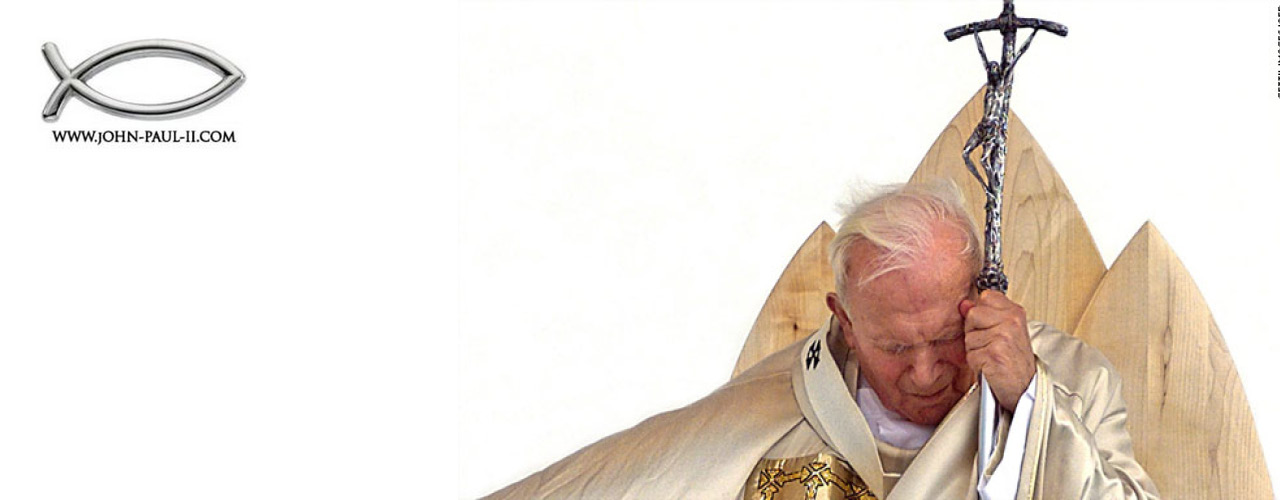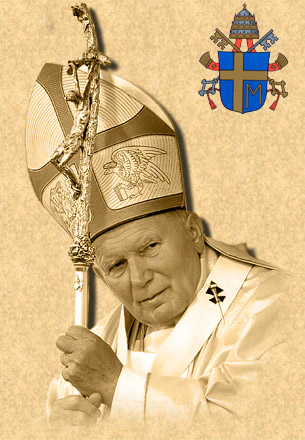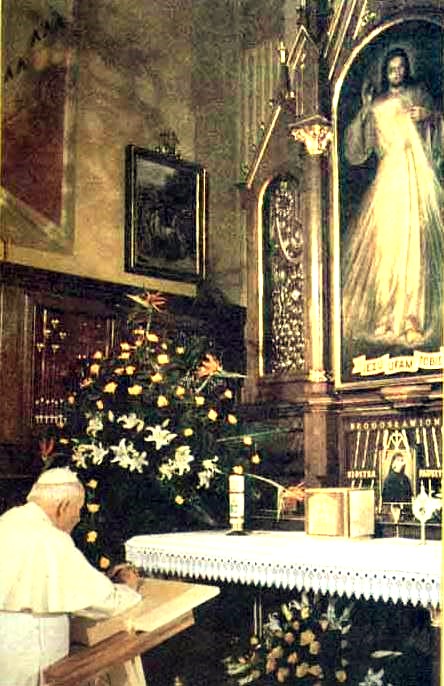John Paul II's Easter Message
"The Strength to Face the Phenomenon of Terrorism"
April 11, 2004 | VATICAN CITY, APRIL 11, 2004
1. "'Resurrexit,' alleluia -- He is risen, alleluia!" This year too the joyous proclamation of Easter, which echoed powerfully at last night's vigil, strengthens our hope. "Why do you seek the living among the dead? He is not here, but has risen" (Luke 24:5-6). Thus the angel encourages the women who have hastened to the tomb. Thus the Easter liturgy repeats to us, the men and women of the third millennium: Christ is risen, Christ is alive among us! His name now is "the Living One," death has no more power over him (cf. Romans 6:9).
2. "Resurrexit!" Today you, O Redeemer of mankind, rise victoriously from the tomb to offer to us, troubled by many threatening shadows, your wish for joy and peace. Those who are tempted by anxiety and desperation turn to you, O Christ, our life and our guide, to hear the proclamation of the hope that does not disappoint. On this day of your victory over death, may humanity find in you, O Lord, the courage to oppose in solidarity the many evils that afflict it. In particular, may it find the strength to face the inhuman, and unfortunately growing, phenomenon of terrorism, which rejects life and brings anguish and uncertainty to the daily lives of so many hardworking and peaceful people. May your wisdom enlighten men and women of good will in the required commitment against this scourge.
3. May the work of national and international institutions hasten the overcoming of the present difficulties and favor progress toward a more effective and peaceful world order. May world leaders be confirmed and sustained in their efforts to resolve satisfactorily the continuing conflicts that cause bloodshed in certain regions of Africa, Iraq and the Holy Land. You, firstborn of many brothers, grant that all who consider themselves children of Abraham may rediscover the brotherhood that they share and that prompts in them designs of cooperation and peace.
4. Take heed all of you who have at heart mankind's future! Take heed men and women of good will! May the temptation to seek revenge give way to the courage to forgive; may the culture of life and love render vain the logic of death; may trust once more give breath to the lives of peoples. If our future is one, it is the task and duty of all to build it with patient and painstaking farsightedness.
5. "Lord, to whom shall we go?" You who have conquered death, you alone "have the words of eternal life" (John 6:68). To you we raise with confidence our prayer which becomes an invocation of comfort for the families of the many victims of violence. Help us to work ceaselessly for the coming of that more just and united world that you have inaugurated with your resurrection. Accompanying us in this task is "she who believed that there would be a fulfillment of what was spoken to her from the Lord" (Luke 1:45). Blessed are you, O Mary, silent witness of Easter! You, O Mother of the Crucified One now risen, who at the hour of pain and death kept the flame of hope burning, teach us also to be, among the incongruities of passing time, convinced and joyful witnesses of the eternal message of life and love brought to the world by the Risen Redeemer.
[Translation of Italian original issued by the Holy See]
(April 11, 2004) © Innovative Media Inc.





